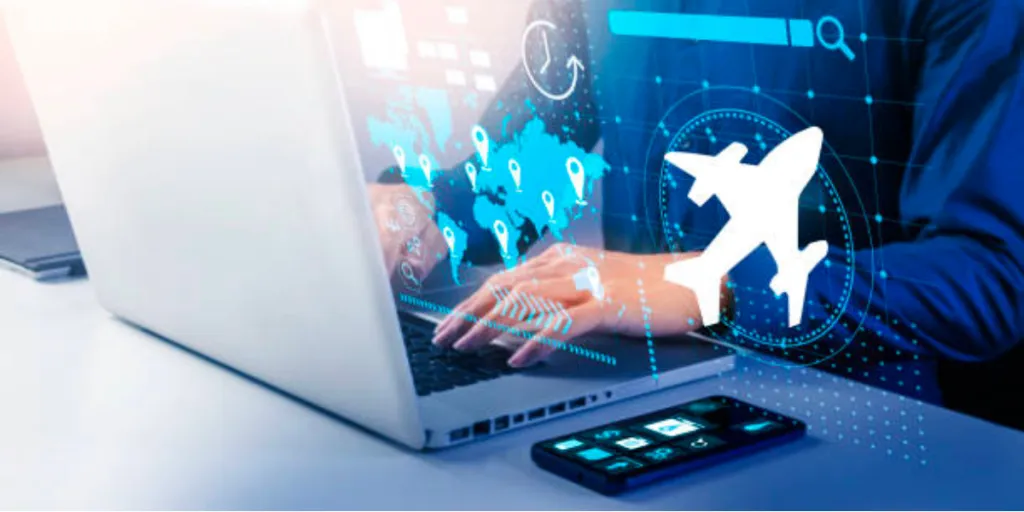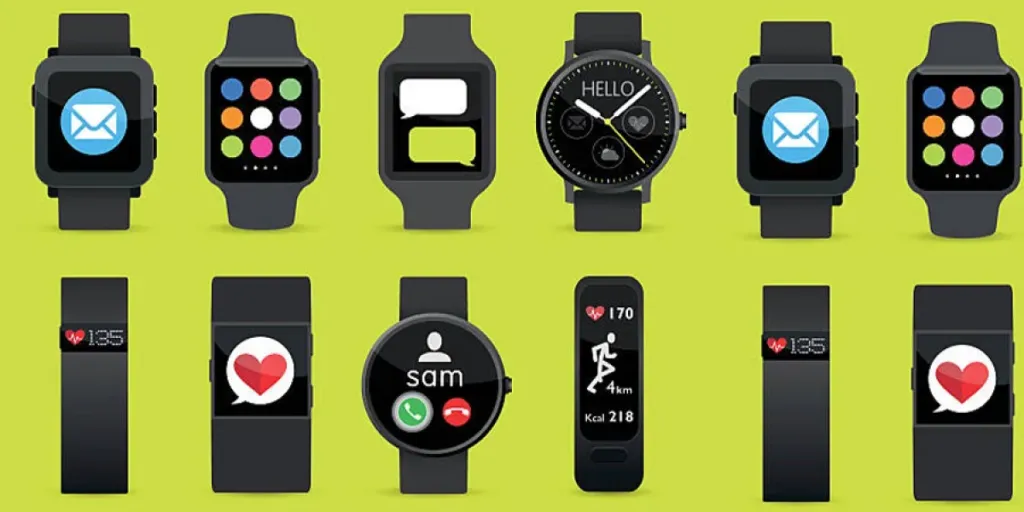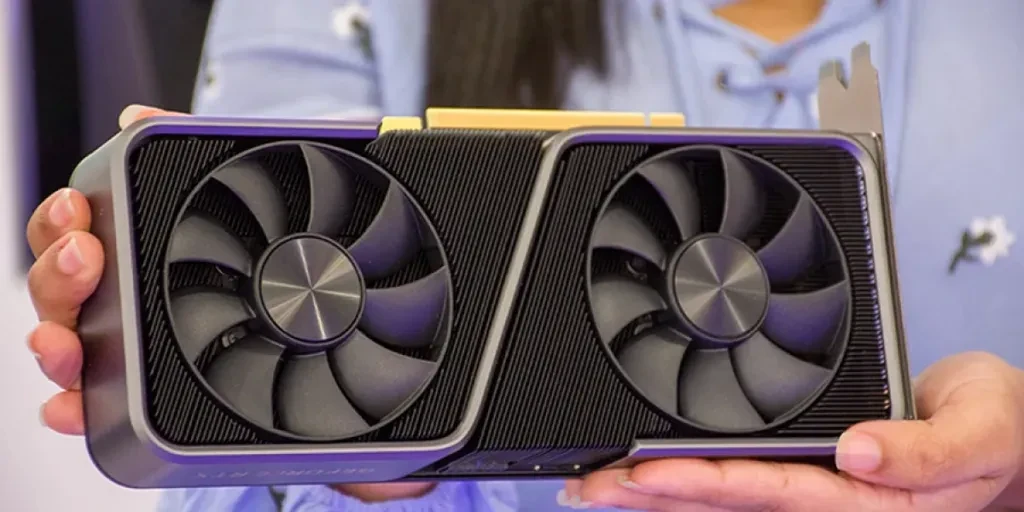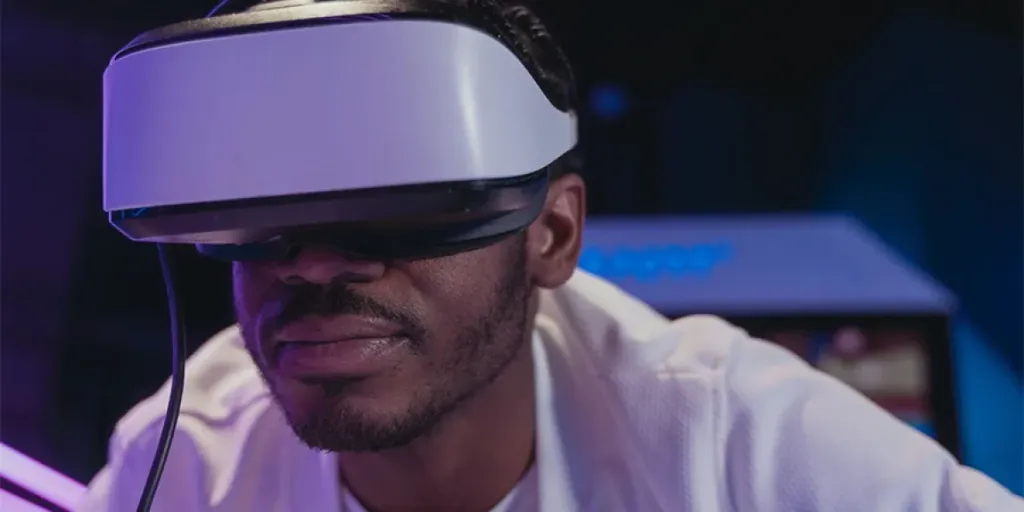As the world redefines travel in the digital age, businesses must adapt to the latest trends. As technology rapidly changes, so does the travel industry.
This article explores advancements revolutionizing the travel industry. Join us as we navigate the future of travel, providing insights into its evolution and current and developing trends.
Table of Contents
The global market for travel tech
Exploring travel tech trends
Navigating the world of travel tech
Getting on board with travel tech trends
The global market for travel tech
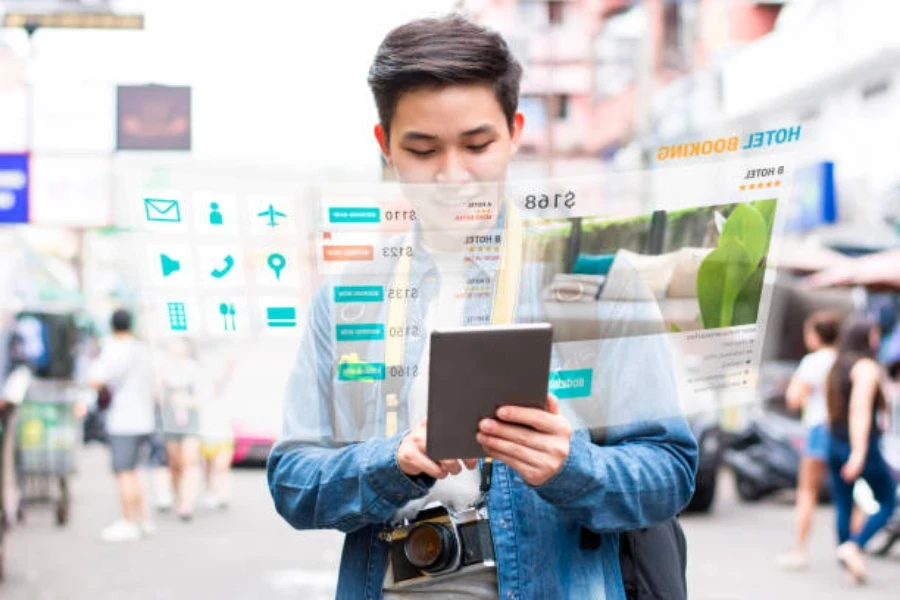
Technology has made some quite incredible advancements in the last few years, heavily affecting the growth of the travel tech market. Currently, this industry is valued at US $181.43 billion and is only expected to grow at an annual growth rate of 10.8% from 2022 to 2028.
These numbers show the resilience of this market and how quickly it was able to snap back despite the unpredicted challenges of the pandemic. This is partly due to the diverse offerings within this market that offer a range of solutions, from planning to experience.
Travel tech has evolved from traditional booking platforms to innovative gadgets and software that enhance every stage of the journey.
Exploring travel tech trends
With over 12,000 monthly searches according to Google Keywords, it’s clear that travelers are increasingly interested in travel tech solutions.
Let’s delve into some of the captivating travel tech trends reshaping how we explore the world.
Smart luggage and tracking devices
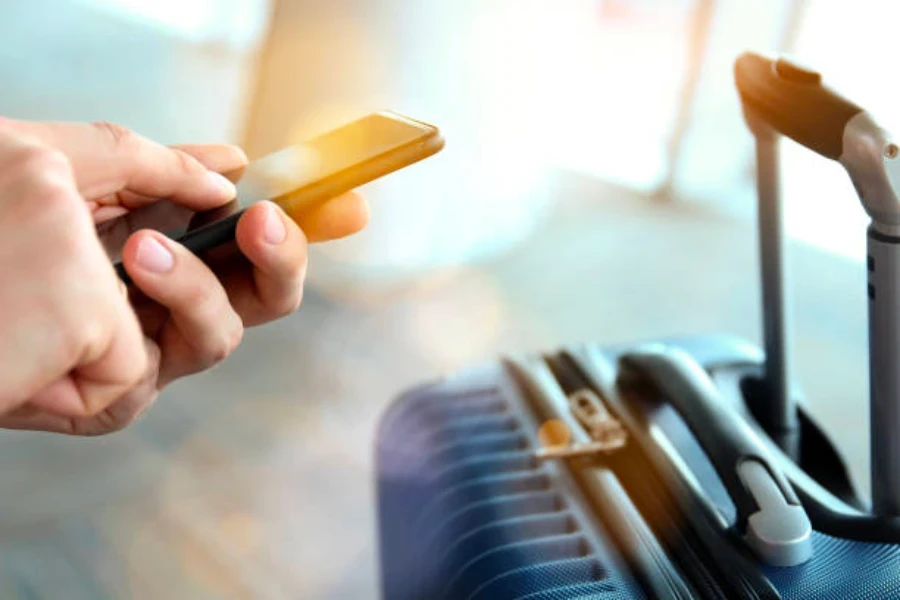
These ingenious travel companions have transformed the way we navigate the globe. Smart luggage, equipped with GPS tracking, digital locks, and even charging ports, is redefining convenience and security for modern travelers.
Imagine never again worrying about lost luggage or scrambling to find an available power outlet at the airport. With over 8,000 monthly searches on Google Keywords, it’s clear that travelers are increasingly recognizing the value of these tech-savvy solutions.
The technology inside these smart luggages includes:
Bluetooth connectivity: Many smart luggage systems use Bluetooth to establish a connection between the luggage and a companion smartphone app. Bluetooth enables features such as proximity alerts, notifying users if they are moving away from their luggage. It also facilitates communication between the luggage and other devices, such as smart locks or tracking beacons.
Digital locks: Smart luggage often incorporates digital or biometric locks, providing an additional layer of security. These locks can be controlled via a mobile app, allowing users to lock and unlock their luggage without the need for physical keys or combination codes. Some advanced models even support fingerprint recognition for added security.
As businesses in the travel industry, paying attention to the growing demand for smart luggage and tracking devices can enhance your customers’ travel experience and position your brand at the forefront of this exciting trend.
Wearable tech

These devices, which encompass smartwatches and fitness trackers, are thoughtfully designed to cater to the needs of modern travelers.
They seamlessly blend convenience, functionality, and style, ultimately enhancing the travel experience in profound ways. Whether effortlessly checking flight updates on your wrist or diligently monitoring health and fitness metrics on the go, wearable tech is an invaluable companion.
This wearable tech includes devices such as:
Biosensors: Wearable tech integrates biosensors to comprehensively measure travelers’ physical and mental well-being. These sensors monitor physiological components like heart rate, body temperature, and blood sugar levels. Notably, biosensors are advancing to include tracking capabilities for sleep patterns, stress, anxiety, and depression. This technological feature provides real-time health insights, promoting overall well-being and awareness for individuals navigating their journeys.
Beacon technology: Beacons facilitate proximity-based interactions and location awareness, allowing for personalized notifications, indoor navigation in areas with weak GPS signals, and enhanced security applications.
With over 60,000 monthly searches related to wearable tech, as indicated by Google Keywords, it’s evident that travelers are increasingly turning to these gadgets to stay connected and informed during their journeys.
Noise-canceling and immersive audio tech
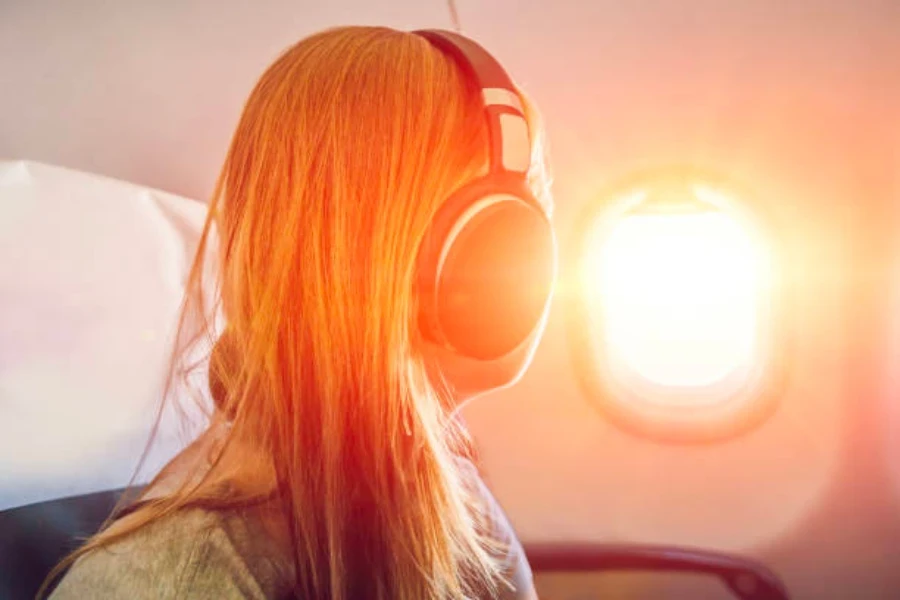
Advanced noise-canceling headphones and cutting-edge audio gadgets are redefining how we experience travel.
They not only cocoon us in a serene auditory bubble amidst the hustle and bustle of airports and flights but also provide immersive entertainment options that transport us to another world.
Specific types of noise canceling headphones and immersive audio tech include:
Hearables: Incorporate various technologies to provide a range of functionalities, making them versatile and adaptable to different user needs. Common features include noise cancellation, fitness tracking, real-time translation, health care applications, and voice assistance.
Active noise cancelation: reduce or eliminate unwanted ambient sounds by generating sound waves that actively negate the incoming noise.
Passive noise cancellation: Reduces unwanted noise through physical elements of the headphones such as creating a tight seal around the ear.
With over 90,000 monthly searches according to Google Keywords, it’s evident that travelers are actively seeking ways to enhance their auditory experience while on the move.
Travel AI

AI is diverse and impactful, from drawing insightful conclusions about business performance to deciphering trends related to customer satisfaction. AI also plays a pivotal role in intelligently managing inventories, ensuring that businesses can optimize their offerings in real-time to meet traveler demands.
Travel AI includes:
Vacay chatbot: A travel-focused AI tool that helps you plan your trip. It can suggest places to visit, book live events and concerts, and recommend hotels and restaurants. It can also show specific prices that different facilities charge for their services, helping you manage travel expenses.
Automated Travel Expense Management: AI streamlines expense reporting by automating the categorization and processing of receipts, saving time for business travelers.
Robotic assistance: AI-driven robots assist with tasks in airports and hotels, including customer service, baggage handling, and cleaning services, providing efficiency and convenience.
With nearly 10,000 monthly searches for Travel AI, according to Google Keywords, it’s evident that travelers and industry professionals alike are recognizing its potential to enhance the travel experience.
Navigating the world of travel tech

As you explore the world of travel tech, it’s essential to research and understand the functionality of different products. Reading reviews and seeking expert opinions can provide valuable insights.
Budget considerations are paramount. Setting a clear budget before shopping can help you narrow your choices and evaluate the value proposition of travel tech gadgets. Quality only sometimes correlates with high costs, so reading reviews and comparing options is essential. Integration and compatibility are key.
Choose travel tech that seamlessly integrates with existing devices, offering cross-platform compatibility for a connected experience. For instance, travel apps like TripIt integrate calendars and email accounts to consolidate travel itineraries in one place, simplifying travel planning and organization.
Getting on board with travel tech trends
In summary, the world of travel tech is evolving remarkably. These trends transform how we explore the world, from smart luggage to wearable tech, noise-canceling audio, and AI.
Embrace these innovations to enhance your journeys and stay connected while on the move.
Take advantage of the opportunity to elevate your travel experience with the latest in travel tech. It’s time to embark on a journey where convenience, innovation, and seamless connectivity await.
